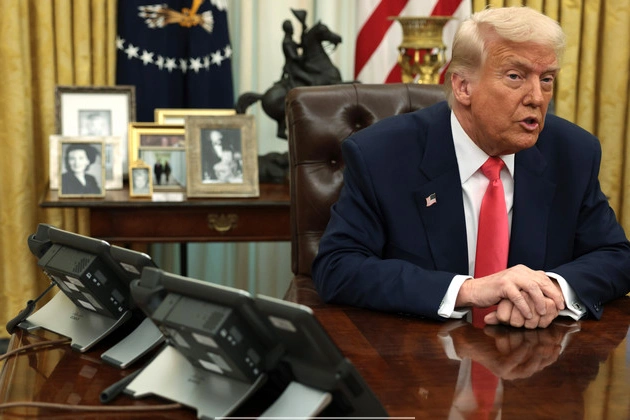
A recent ruling by a Georgia appeals court has mandated the disqualification of Fulton County District Attorney Fani Willis and her office from the criminal racketeering case they initiated against President-elect Donald Trump and his associates regarding the 2020 election results.
In a split 2-1 decision, the court cited a conflict of interest arising from Willis’ romantic involvement with an external prosecutor hired for the case, Nathan Wade.
Legal Ramifications and Future Steps
The disqualification decision is deemed necessary to restore public trust in the legal proceedings, as stated by Judge Trenton Brown in the ruling. This development is expected to lead to the reassignment of the case to a different prosecutor, given the conflict of interest concerns.
However, the impending inauguration of Trump as president raises questions about the fate of the charges against him, which may be put on hold or dropped entirely during his term. Meanwhile, the prosecution against Trump’s co-defendants, including prominent figures like Mark Meadows and Rudy Giuliani, could continue amid these uncertainties.
The case has faced significant delays, primarily due to allegations of financial conflicts between Willis and Wade, with claims of extravagant vacations funded by Wade while he served as a special prosecutor under Willis’ office.
Despite previous attempts to address these conflicts, such as Wade’s resignation following court directives, the appeals panel found the measures insufficient. Willis, an elected Democratic district attorney for Atlanta, has the option to challenge the recent ruling in the Georgia Supreme Court, prolonging the legal saga surrounding the case.
Challenges and Potential Outcomes
Reassigning the case to a new prosecutor could introduce further delays, potentially extending the legal process by months or even years. Moreover, the differing legal perspectives of a new prosecutor may impact the direction of the case, particularly concerning the application of Georgia’s racketeering laws against Trump allies.
Currently, 15 defendants face criminal charges in connection to the alleged election interference scheme, with varying outcomes for those who have already reached plea deals. Trump’s plea for outright dismissal of the indictment was rejected by the appeals court, emphasizing the need for addressing conflicts of interest.
Willis’ handling of the case has attracted criticism from multiple quarters, with concerns about bias and impropriety raised by judges overseeing the proceedings. Previous instances of disqualification and reprimands underscore the challenges in maintaining impartiality and integrity throughout the investigation.
Allegations and Legal Proceedings
The case against Trump and his allies revolves around accusations of orchestrating fraudulent electoral processes and pressuring state officials to overturn the 2020 election results in Georgia. The legal battle includes claims of misinformation dissemination and attempts to manipulate the electoral outcome in favor of Trump.
While the federal criminal case against Trump was dropped after the 2024 election, the state-level prosecution in Georgia continues to face hurdles and controversies. The dissenting opinion within the appeals panel highlights the complexities of disqualification decisions based on conflicts of interest.
As the legal saga unfolds, the implications of the disqualification ruling on the case’s trajectory and potential outcomes remain uncertain. The need for transparency, fairness, and adherence to legal standards underscores the importance of resolving conflicts of interest to ensure a just and credible legal process.















